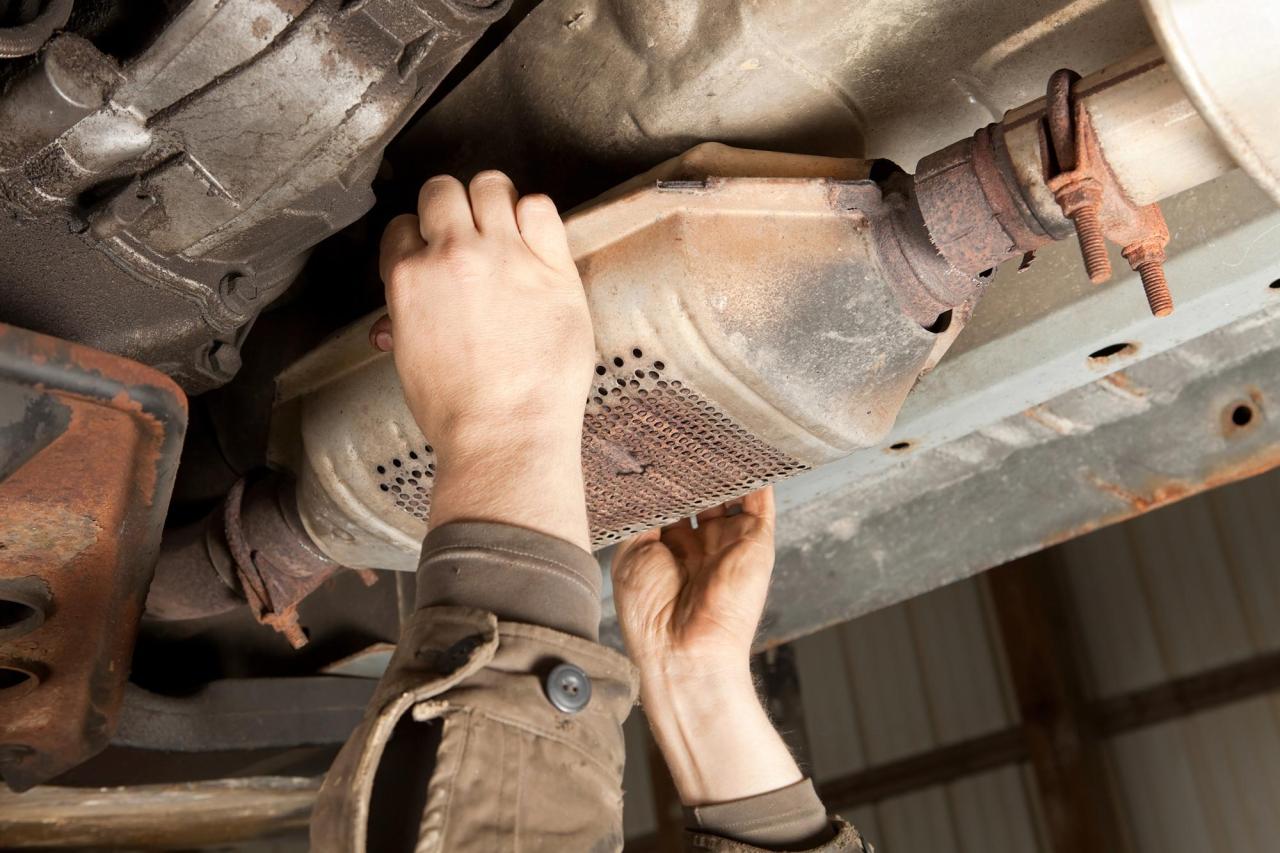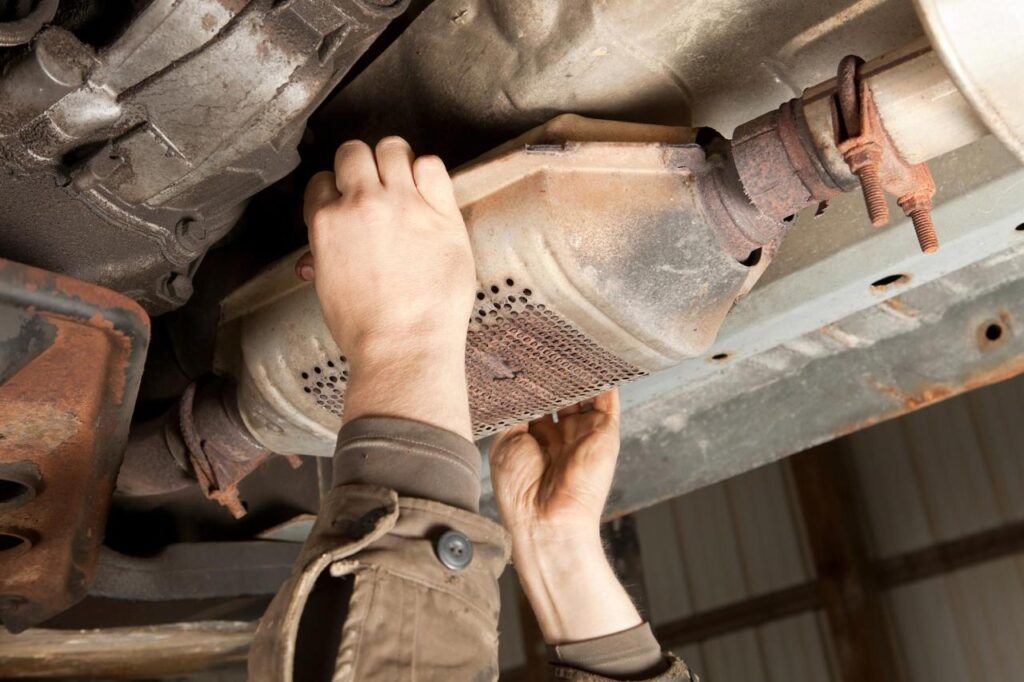Overview of Catalytic Converter Theft

Catalytic converter theft has become increasingly prevalent in recent years, posing a significant threat to vehicle owners. These devices, which play a crucial role in reducing harmful emissions from vehicles, are targeted by thieves due to the valuable metals they contain.
According to the National Insurance Crime Bureau (NICB), over 140,000 catalytic converters were stolen in the United States in 2021. This represents a staggering 325% increase from 2019. The cost of these thefts to vehicle owners is estimated to be in the billions of dollars.
Prevalence of Catalytic Converter Theft
Catalytic converter theft is particularly prevalent in areas with high concentrations of vehicles, such as urban centers and parking lots. Thieves often target vehicles that are parked in secluded or poorly lit areas, making them easy to access and remove the converter without being detected.
Certain types of vehicles are more likely to be targeted for catalytic converter theft. These include hybrid vehicles, SUVs, and trucks, as their converters are often more valuable and easier to remove.
Reasons for Catalytic Converter Theft
The primary reason for catalytic converter theft is the high value of the precious metals they contain. These metals, including platinum, palladium, and rhodium, are used in the converter’s catalytic process to reduce emissions.
The price of these metals has fluctuated in recent years, with palladium and rhodium reaching record highs in 2021. This has made catalytic converters even more attractive to thieves, who can sell them to scrap metal dealers for a significant profit.
Insurance Coverage for Catalytic Converter Theft
Comprehensive auto insurance typically covers catalytic converter theft. This coverage reimburses the policyholder for the cost of replacing the stolen converter and any associated labor costs. However, there may be some exclusions or limitations that apply, such as:
- The policy may require the policyholder to have a certain deductible before coverage kicks in.
- Some policies may only cover catalytic converter theft if the vehicle is parked in a secure location, such as a garage.
- There may be a limit on the amount of coverage available for catalytic converter theft.
Process for Filing a Claim for a Stolen Catalytic Converter
If your catalytic converter is stolen, you should file a claim with your insurance company as soon as possible. The claims process typically involves the following steps:
- Contact your insurance company and report the theft.
- Provide the insurance company with the details of the theft, including the date, time, and location.
- The insurance company will assign an adjuster to your claim.
- The adjuster will inspect your vehicle and assess the damage.
- The insurance company will then issue a payment to you for the cost of replacing the stolen catalytic converter and any associated labor costs.
Preventative Measures
Catalytic converter theft is a growing problem, but there are steps you can take to prevent it. Parking in well-lit areas and using anti-theft devices are two effective ways to deter thieves.
Anti-theft devices can be a physical barrier, such as a cage or shield, or an electronic device, such as an alarm or tracking system. Physical barriers make it more difficult for thieves to remove the catalytic converter, while electronic devices can alert you to the theft or help law enforcement track down the thieves.
Law Enforcement
Law enforcement plays an important role in deterring catalytic converter theft. By increasing patrols in areas where catalytic converter theft is common and cracking down on scrap metal dealers who purchase stolen catalytic converters, law enforcement can make it more difficult for thieves to operate.
Legal Implications
Catalytic converter theft is a serious crime with severe legal consequences. Thieves face criminal charges, including theft, vandalism, and even environmental violations. The penalties for catalytic converter theft vary depending on the jurisdiction, but typically involve fines, imprisonment, or both.
Impact on Insurance Rates
Catalytic converter theft has a significant impact on insurance rates. Insurance companies view catalytic converter theft as a high-risk crime, as it is often difficult to prevent and can be costly to replace. As a result, insurance companies may increase premiums for drivers who live in areas with high rates of catalytic converter theft.
Role of Salvage Yards
Salvage yards play a crucial role in preventing the sale of stolen catalytic converters. By requiring sellers to provide proof of ownership and matching the catalytic converter’s serial number to the vehicle, salvage yards can help deter thieves from selling stolen converters. Additionally, salvage yards are required to report any suspicious transactions to law enforcement, which can help identify and apprehend thieves.







